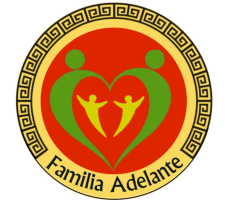
Copyright © 2024 Familia Adelante. All Rights Reserved webmaster: Reyes Consulting rccdallas@aol.com
The Research
Familia Adelante Evaluation
Familia
Adelante,
initially
tested
with
middle
school-aged
youth
with
behavioral
problems
in
Southern
California,
demonstrated several positive outcomes, including:
•
Effective screening of high-risk youth
•
Culturally-responsive program content
•
Successful retention of high-risk families through bilingual outreach personnel
The
program
was
also
rigorously
tested
in
the
Blythe
Street
Project
in
Van
Nuys,
California,
showing
significant
improvements
in
youth
self-esteem,
school
performance,
and
overall
conduct.
Further
studies
revealed
that
Familia
Adelante's strategies effectively reduced multiple risk behaviors in a predominantly Mexican-American sample, i.e.
•
Enhancing communication
•
Perception of substance use harm
•
Reducing social norms related to risky behaviors
The program shows promise in improving various aspects of participants' family life and supports the feasibility of
multi-risk reduction behavioral health prevention approaches.









